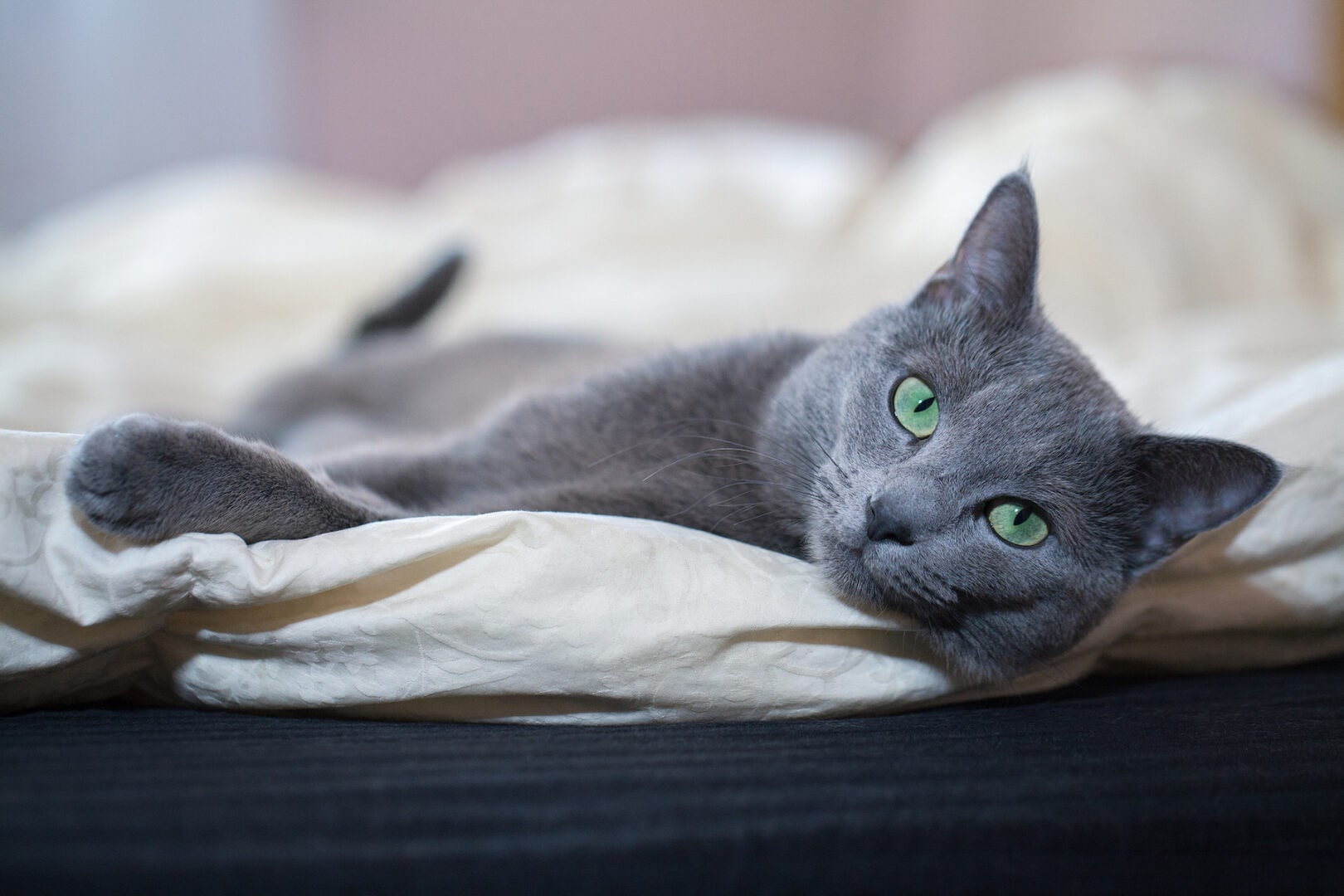
Looking for pet care? Find cat sitters in your area now.
If you have cat allergies, you may have given up on your hopes of being a cat owner. But abandoning your feline dreams may not be necessary. Non-shedding cats might be the solution to your problem. “There are two types of cat allergies — dander and protein,” explains Jacqui Bennett, the education and outreach chairperson for Cat Fanciers’ Association, Inc.’s Breed Standards.
“If you are allergic to dander, you may be able to own a cat which does not have a double coat.” Most cats have double coats, which include a woolly undercoat and an outer coat of coarse guard hairs, but some cats, such as a Cornish Rex, Devon Rex or Sphynx don’t, she notes, adding, “If you’re allergic to protein, which can be found in a cat’s saliva, it is difficult to find a cat which you are not allergic to.”
If you’re allergic to cats, resist the urge to bathe a kitty to help relieve your allergies. This strategy does not work, according to Michelle Groeper, executive director of Tails Humane Society, which handles animal rescues and adoptions. “Cat baths aren’t advisable,” she says, because after the bath, “the cat’s body will work overtime to get its natural pH balance back to normal, which may result in additional allergy issues.”
To keep allergies at bay, Groeper instead recommends a regular routine of using pet wipes and brushing the cat. She emphasizes that during that process, “not touching your face and eyes, along with washing your hands frequently, can contribute to a more harmonious coexistence with the feline friend and allergic human friend.”
Looking for pet care? Find cat sitters in your area now.
If you’re planning to adopt any new furry family member, make sure to spend time with the pet to ensure your allergies won’t pose a problem. Here’s a list of 10 top non-shedding cats:
- Bengal
This breed closely resembles its big cat relatives, especially the leopard. They are “highly active and, for the most part, very vocal. They will let you know exactly where you stand,” says Bennett.
Bengal
- Bombay
If you’re looking for a pet panther, you’re in luck! This breed looks a lot like its cousin. “The Bombay is an outgoing, friendly cat with a loving personality, who is comfortable with other cats, dogs, and children,” Bennett explains.

Bombay
- Russian Blue
A devoted companion animal, this cat will do whatever it can to get your attention. They’re a fairly quiet breed but very affectionate and, as Bennett notes, will “find a quiet seat next to you or fetch a toy at playtime.”
Russian Blue
- Siberian
Also called the Siberian Forest Cat, this cat “enjoys the company of children, dogs, and other animals,” Bennett says.
Siberian
- Burmese
The wide eyes and lovable nature of this breed will melt your heart. According to Bennett, “their personalities are almost dog-like.” Because of their relatively innocent and trusting nature, they should be indoor-only cats.
Burmese
- Devon Rex
Bennett refers to this breed as the “Pixie of the Cat Fancy” because of its elf-like ears and “large, impish eyes.” She notes that these cats “are a fun-loving breed with a relaxed and social attitude rarely associated with cats.” If you consider yourself more of a dog person, this may be the cat for you!
Devon Rex
- Cornish Rex
With its curly coat and very large ears set atop a small head, this is an energetic and vocal cat who will constantly remind you that she’s the boss. Be prepared to give her lots of attention, Bennett warns, because she’ll demand it.
Cornish Rex
- Colourpoint Shorthair
This lithe cutie is “a chatterbox,” notes Bennett, “and at the same time is a loving and an affectionate breed, devoted and loyal to people.” Colourpoint Shorthairs demonstrate sensitivity and compassion toward their owners.
Colourpoint Shorthair
- Siamese
This popular breed is very friendly, outgoing, and playful. They require lots of love and attention from their humans, and they will let you know if you aren’t giving them enough attention! As one of the most vocal cat breeds, they’ll provide constant companionship.
Siamese
- Sphynx
Although a non-shedding cat, this breed does produce dander. Their “playful” and “mischievous” personality makes them the centre of attention, says Bennett, adding that they “seem to prefer human attention but enjoy the company of dogs and all other breeds of cats.”
Sphynx
Looking for pet care? Find cat sitters in your area now.
Read Next: How to Handle These 7 Cat Behaviour Problems
Read Next: 6 Signs You Need to Get a Cat Sitter
Read Next: Expert Pet-Friendly Interior Tips
